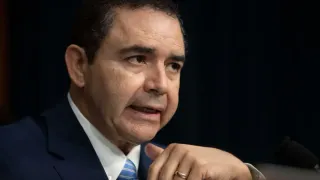
Nov 8
U.S. Supreme Court Mandates Parental Opt-Outs for LGBTQ+ Content, Sparking Nationwide Debate on Inclusive Education
READ TIME: 4 MIN.
On November 6, 2025, the U.S. Supreme Court issued a landmark 6-3 decision in Mahmoud v. Taylor, holding that public schools are required to grant parental requests to exclude their children from curriculum elements that conflict with their religious beliefs. While the case centered specifically on LGBTQ+-inclusive books and instructional materials, the ruling’s implications extend to a broad array of topics including race, social justice, and identity education .
The case was brought by a group of parents who argued that exposure to LGBTQ+ content in mandatory reading assignments and classroom discussions violated their sincerely held religious convictions. The Supreme Court’s majority opinion stated that “parents retain the fundamental right to direct the upbringing and education of their children, particularly in matters of religious conscience.” The dissent warned that this precedent could erode the ability of public schools to promote inclusivity and foster environments where all students feel valued.
The ruling has reignited national debates about the boundaries of parental rights, the mission of public education, and the status of LGBTQ+ inclusion in the classroom. According to Dr. LaGarrett King, professor of social studies education at the University at Buffalo, the decision places schools in a precarious position, both logistically and philosophically .
- School administrators now face the prospect of a significant increase in opt-out requests, which could create administrative backlogs and disrupt classroom management.
- Teachers may need to develop alternative assignments for students who are excused, potentially leading to uneven educational experiences and increased workloads.
- A growing number of student absences on days featuring inclusive lessons could undermine the continuity of instruction and school climate.
The opt-out policy also raises questions about how schools can maintain their obligations to create inclusive environments for LGBTQ+ and other marginalized students if significant portions of the student body are excused from participating in lessons aimed at fostering respect and understanding.
Educators and advocates warn that the ruling may embolden efforts to challenge or restrict not only LGBTQ+-focused materials but also curricula centered on race, equity, and social justice . In some districts, parents have already sought to remove their children from Black History Month programming and other courses addressing systemic inequality.
Dr. King notes, “This ruling opens the door for more opt-outs from curriculum and lessons that are deemed polarizing. Black history education, along with content related to race, equity and social justice, has already been subject to opt-out requests in some places” .
There is also concern that allowing opt-outs specifically for LGBTQ+-inclusive content sends a damaging message to LGBTQ+ youth and their families. “The most pressing concern is the idea that LGBTQ+ youth are not valued members of their communities. If parents can opt out of LGBTQ+-related education — and if that’s the only type of curriculum families are allowed to opt out of — what message does that send to those students and their families?” Dr. King asked in a recent interview .
LGBTQ+ students already face higher rates of bullying and mental health challenges compared to their peers. Inclusive curricula have been shown to help reduce stigma and promote a sense of belonging for LGBTQ+ youth. Conversely, policies that allow opt-outs or restrict inclusive content may reinforce social isolation and increase the risk of harassment .
The Supreme Court’s decision follows a period of rapidly shifting policies on LGBTQ+ issues in education at both state and federal levels. In 2025 alone, multiple states have debated or enacted policies restricting discussions of gender identity and sexual orientation in schools .
For example, the Maryland State Department of Education recently proposed revisions to state health education standards that would delay instruction on gender identity from kindergarten to fifth grade in response to mounting parental and political pressure . The move has been characterized as a compromise between those favoring greater inclusion and those seeking to remove references to gender diversity from early education altogether. Maryland parents retain the right to opt out their children from the Family Life and Human Sexuality portion of health classes, which specifically includes lessons on gender identity.
At the same time, federal authorities have intervened in several states’ education policies, with the U.S. Department of Education and the federal courts weighing in on the balance between anti-discrimination protections and parental rights .
LGBTQ+ advocacy organizations, including the Human Rights Campaign and GLSEN, have expressed deep concern over the Supreme Court’s ruling and its potential impacts. They argue that the ability to opt out of LGBTQ+-inclusive lessons undermines efforts to combat bullying, reduce suicide risk, and create affirming school environments for all students .
Advocates emphasize that inclusive curricula serve a dual purpose:
- They affirm and support LGBTQ+ students, who may otherwise feel invisible or marginalized.
- They educate all students about diversity, respect, and the lived experiences of different communities, which research shows reduces prejudice and fosters empathy .
Many LGBTQ+ students and their allies have reported feeling demoralized or targeted by the movement to restrict inclusive content. Some have organized demonstrations and petition drives at the local level to defend diversity education and urge school boards to resist further rollbacks .
The policy change has also placed new strains on teachers and school staff. Research from the Brookings Institution highlights that LGBTQ+ educators, who often serve as critical sources of support for LGBTQ+ students, are themselves experiencing increased scrutiny and risk as political and legal debates over inclusive education intensify .
A recent report notes, “The rapidly shifting political and legal climate impacting LGBTQ students in schools may also adversely impact their teachers, especially those who identify as LGBTQ themselves and provide much-needed support for students” . Teachers fear repercussions for acknowledging their identities or facilitating open discussions about diversity, despite constitutional protections for employment rights.
With the Supreme Court’s ruling now in effect, public schools across the United States are confronting a new landscape in which parental opt-outs may become commonplace for any lesson deemed controversial or inconsistent with individual beliefs. This raises complex questions about how to fulfill legal obligations to respect parental rights while upholding commitments to equity, inclusion, and the well-being of all students .
Educators, policymakers, and community members are likely to continue debating where the line should be drawn between respecting family values and ensuring that all students—particularly those from LGBTQ+ and other historically marginalized backgrounds—receive an education that affirms their identities and prepares them for a diverse society.






